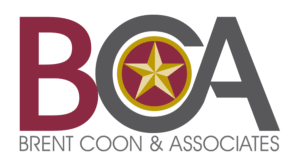Who Is Responsible for a U-Turn Crash?
Who Is Responsible for a U-Turn Crash?
U-turn accidents are unfortunately more common than most drivers think. U-turns are a convenient way to redirect your course and sometimes are the only way to get into a parking center or a specific building. It’s always useful to know exactly what to do in an unexpected but preventable accident situation.
Here are a few different ways of looking at U-turns and U-turn accidents. Understanding how fault works in these types of accidents can help to reduce some of the stress at the scene. Of course, you should not hesitate to contact a local Texas car accident lawyer or to report the accident to your insurance provider.
U-Turns and Reverse Turns
A U-turn is a process of turning your vehicle by 180 degrees so that you are now going in the opposite direction from what you were initially traveling. You’ve probably performed this maneuver successfully a number of times, and you’ve probably seen other drivers manage it without any trouble.
U-turns are also called reverse turns. However, many people confuse the term “reverse turns” with the act of backing up to complete a full turn.
Rules of the Road
There are times when it is completely illegal to make a U-turn. If there is not a sign prohibiting it if the person making the U-turn had the left turn arrow if they are in the far left lane and if there is a U-turn only sign.
Other elements such as crossing a double yellow line come on Changing direction in a residential area, and even executing a U-turn on a highway can be legal under the right situations. The trouble is that drivers often see U-turns as convenient for them and that other driver will accommodate their need to change direction.
However, there are more times when it is illegal to make a U-turn than there are accommodations to make illegal U-turn. Throughout Texas, you’ll see many no U-turn signs come out one-way streets, railroad crossings, and divided highways or roadways where it is not legal to execute a U-turn.
U-Turn Crashes
U-turn accidents often happen within a limited scope of action. It is possible for a U-turn collision to happen when two drivers are heading the same direction, and the driver in the leftmost lane was in the blind spot of the driver attempting the U-turn.
It is also possible for U-turn accidents to happen In the middle of the roadway or someone attempted to execute an unsafe U-turn or in an intersection, or they may have believed they had the right of way. Intersections and lights do not guide right of way when it comes to U-turns if the maneuver would have been unsafe.
Determining Fault in U-Turn Accidents
Fault, of course, is the primary element that people are considered when it comes to crash resolution. The generalization with reverse turns is that whoever was attempting to execute the U-turn was at fault. The idea behind this is that there is no element of defensive driving to making a U-turn. It is a safer option to make a left turn and course-correct later, or even to turn off the road and plan your next move rather than to execute a U-turn in traffic.
It is also likely that both parties will be found at fault even if it seems that the person making the U-turn was most in error. If a person was trying to make a U-turn in an intersection where they had the left turn right of way, then it’s possible that the person making the U-turn had the right of way but was still driving unsafely.
Resolve Your Wreck with a Texas Car Accident Lawyer
After a U-turn crash, you may have experienced a substantial amount of injury. U-turns are notorious for causing a fair amount of damage even when they are at a low speed. When in a U-turn accident, the victim’s vehicle is often hit in a way that cars are not usually struck, which means that the car may not be fitted with safety devices to handle this type of collision.
At Brent Coon and Associates, our team of skilled and well experienced Texas car accident attorneys are ready to jump in on these unusual crash situations. With years of experience in settlement negotiation, we’ll handle the difficult elements of the crash resolution. We understand that the other driver may genuinely believe that they were conducting illegal maneuvers and that they may fight this claim passionately. Contact our offices to get someone on your side today.
search
our offices
FROM THE BLOG
Texas A&M donors’ lawsuit against 12th Man Foundation over Kyle Field seats and parking to proceed
By David Barron, Correspondent A Brazos County state district judge has cleared the way for a long-delayed trial showdown between a group of disillusioned Texas A&M donors and the A&M-affiliated 12th Man Foundation, stemming from a decade-old dispute over seating and parking rights at Kyle Field. State District Judge George Jerrell Wise on Wednesday signed an order denying a summary…
Lawsuit Against Texas A&M Aggies 12th Man Foundation Moves Forward
A legal showdown between former Texas A&M donors and the 12th Man Foundation will proceed at last. A Brazos County judge has ruled that a lawsuit between former Texas A&M Aggies donors and the 12th Man Foundation will move forward, David Barron of the Houston Chronicle reports. On Wednesday, State District Judge George Jerrell Wise…
Texas A&M donors’ lawsuit against 12th Man Foundation over seating, parking dispute cleared for trial
A group of Texas A&M donors will finally get their day in court for a dispute against the 12th Man Foundation over parking and seating at Kyle Field. According to the Houston Chronicle, a judge in Brazos County last week denied a summary judgment motion from the 12th Man Foundation, which sought to dismiss the…


